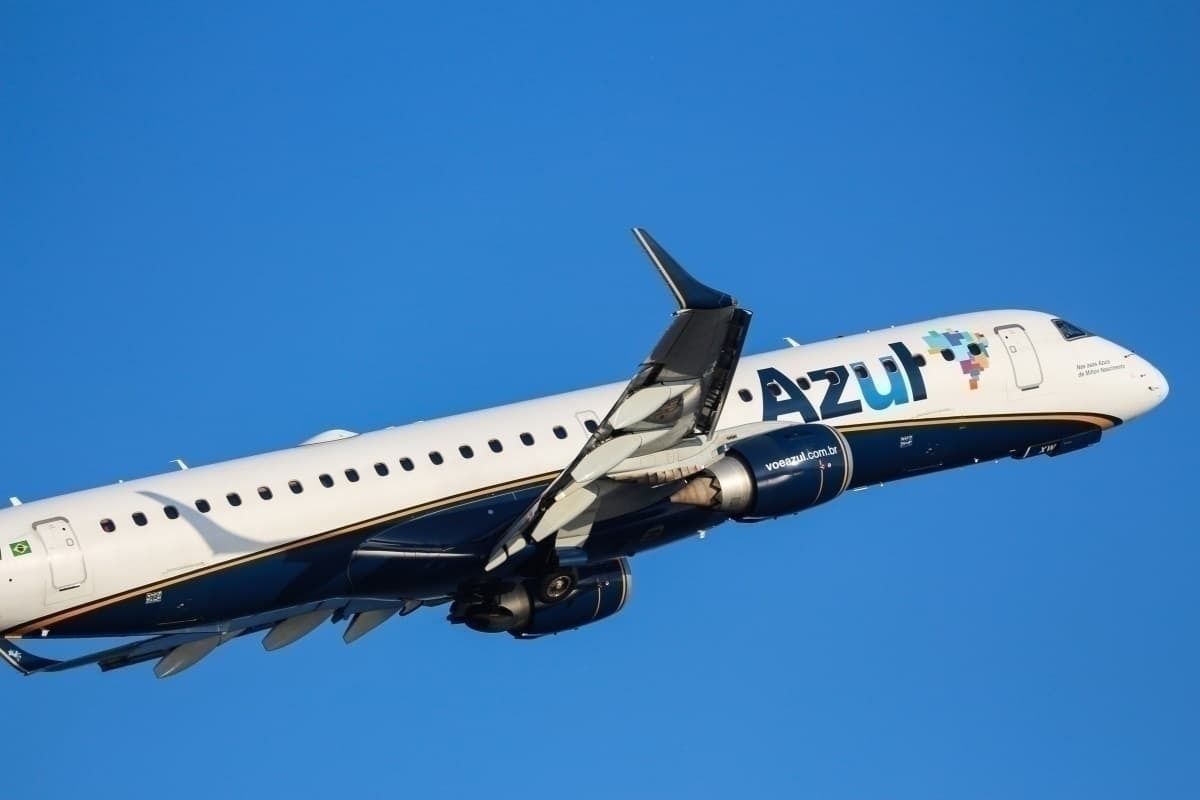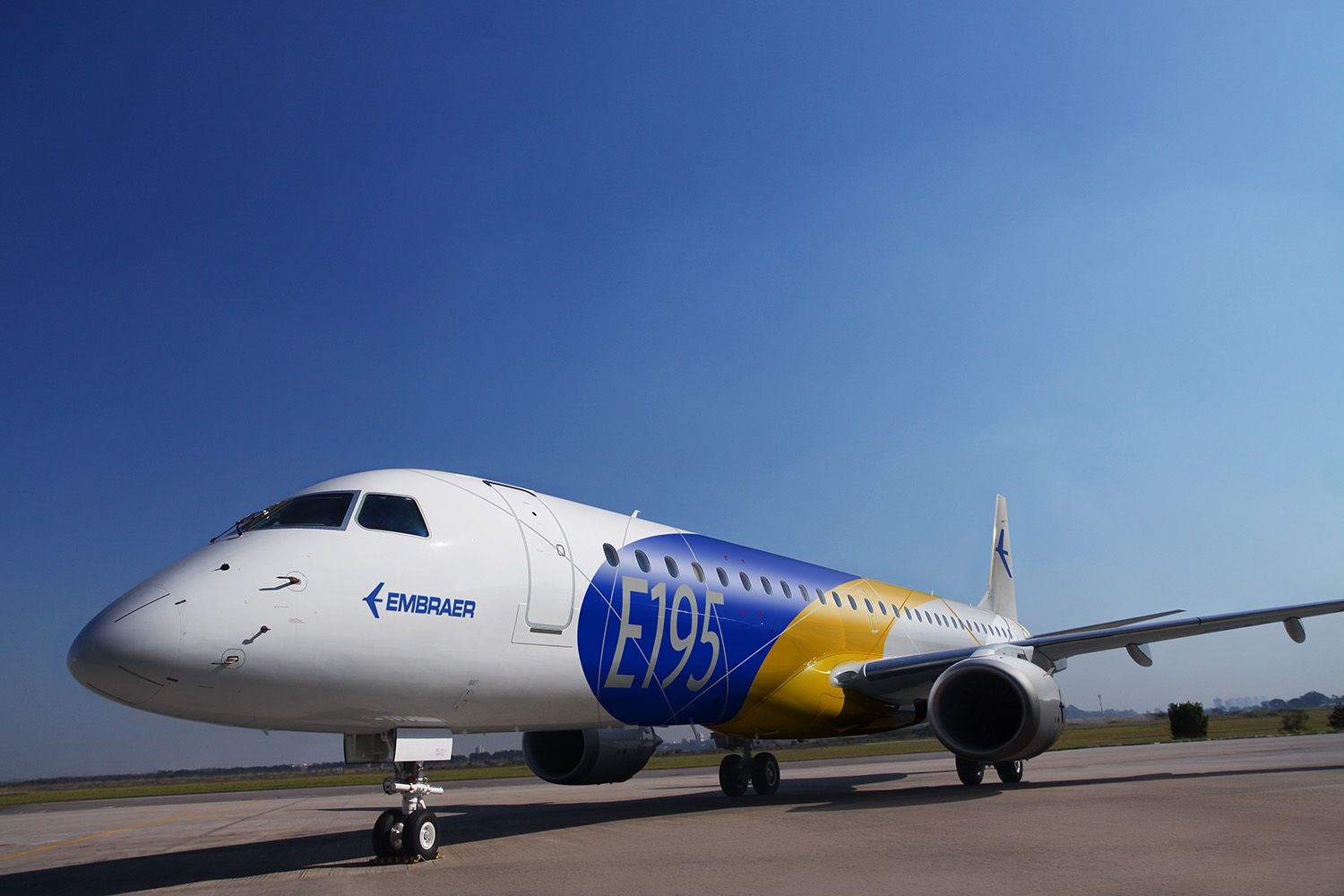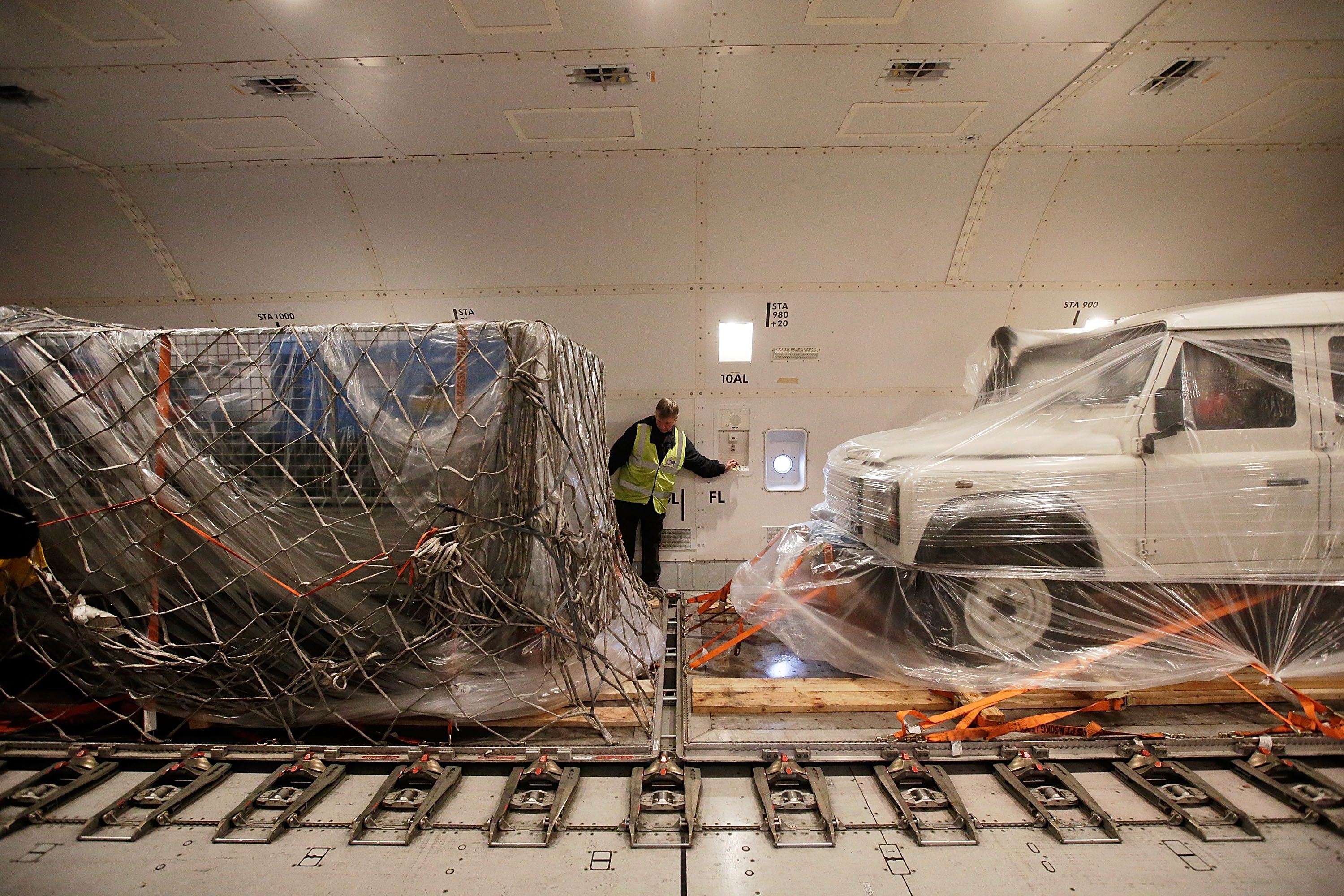Azul has this week announced it has developed an E195 in full cargo configuration in partnership with LHColus Technologia, a Brazilian aerospace engineering company. Everything from preliminary conceptual design work to flight tests and legal certification was done in-house with contributions from both companies.
Abhi Shah, Azul’s Chief Revenue Officer, stated the following:
“Azul has helped to double the size of the Brazilian aviation market over the last thirteen years. A key driver of that growth was the E1. Today with the launch of the world’s first Embraer Class F freighter we again aim to transform the Brazilian market, this time in logistics. With unmatched operational flexibility, reliability, and access to varied airport infrastructure, the E1 Class F is the perfect platform to deliver a competitive advantage to our logistics customers.”
Azul’s cargo solution
The E195 E1 Series aircraft in question bears the registration PR-AXW. It was granted certification by ANAC, the Brazilian civil aviation authority, on 1st February. However, Azul has been operating makeshift cabin cargo E195 flights for quite some time now.
In July 2020, ANAC gave the nod allowing airlines to carry additional cargo in cabins of certain Embraer aircraft, including the E195. Embraer’s engineering team came up with two solutions for cargo placement in the cabins- either on empty passenger seats or on the floor by getting rid of 70% of the seats. Azul was quick to take advantage of this provision and started operating a cargo E195 with 3.75 metric tons (8,260 lbs.) of floor-mounted cargo. This figure is in addition to cargo capacity in the aircraft’s belly hold.
The dedicated freighter version announced earlier this week will be able to carry even more cargo. Capacity is more than doubled from 7 to 15 metric tons (15,400 lbs. to 33,000 lbs.). Azul claims using the Embraer E195 freighter will help reduce carbon emissions by as much as 7,900 tons (17.4 million lbs.) each year.
Cargo is king
Due to the ongoing coronavirus pandemic, airlines around the world have realized the importance of their fleet’s cargo-carrying capacity. Frequent lockdowns and border closures may affect passenger traffic, but the movement of goods continues even in trying times. Some airlines were seen trying to make the most of passenger jet groundings by converting aircraft to 'preighters’- passenger jets converted to freighter configuration.
Cargo fleets usually comprise long-haul aircraft like the Boeing 777F and 747 freighters. There are plenty of those around, but when it comes to servicing short routes with limited cargo, there aren’t many time-tested alternatives. For that reason, a strong fleet of freighter E195s could be a game-changer for Azul, especially considering the number of regional airports in Brazil.
Azul plans to build four E195 freighters in partnership with LHColus Technologia initially. These will complement its two dedicated Boeing 737-400 freighters, for a total of six aircraft dedicated for Azul Cargo Express.



